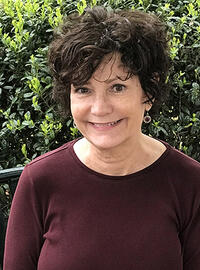Online Education—A Global Mission
Online Education—A Global Mission
By Joanne Strobel, Executive Director of Urantia Book Internet School, Georgia, United States
Urantia Book Internet School (UBIS) is entering its third decade. This Foundation program is now poised to grow from four languages into as many as ten over the next nine years. It is a testament to the prescient vision of Trustee Georges Michelson-Dupont that we were able to identify and ride the ascendancy of the “world wide web.” While ubiquitous in most parts of the United States, reliable internet access is not yet a world-wide commodity. Thankfully the use of cell phones has enabled readers in developing nations to participate in this and other Urantia Book–based educational programs, as well as scores of virtual study groups.
UBIS provides the cozy and interactive atmosphere of a study group in a six- or ten-week format. The asynchronous platform allows readers from any time zone to participate at their leisure. Unlike other schools, UBIS utilizes peer-to-peer facilitation. Courses are developed and presented by readers like you or me. Our teacher-facilitators (TFs) have all read the book from cover to cover several times, have taken at least three courses and shown themselves to be effective communicators, and have been trained in facilitation and question development. This structure was built on a foundation of principles derived from the study of the fifth epochal revelation and can best be described as non-interpretive facilitation of self-discovery of the truths revealed in The Urantia Book.
What does that mean exactly? It means that TFs are not instructors in the traditional sense. While provocative questions are provided to stimulate students and generate responses, there are no right answers beyond factual information. Each student brings a unique perspective to every discussion, and each individual’s perception of revealed spiritual truth may be unlike anyone else’s. This teaching philosophy gives each individual a safe environment in which to explore and contemplate the meanings and values discovered in the assigned readings. Students experience a sense of spiritual community during group sharing exercises, and lasting relationships are often forged.
The goal of every course, in any language, is to promote the expansion of cosmic consciousness and the enhancement of spiritual perception.
English branch: Last year, 20 TFs developed and presented 20 courses taken by 243 students from 19 countries.
1. Khatuhkira Bernard, Uganda
2. Hara Davis, England
3. Tim Duffy, United States
4. Dave Elders, Mansonia
5. Marta Elders, United States
6. Raymond Gardini, United States
7. Tom Hansen, United States
8. Michael Hill, United States
9. Bruce Johnson, United States
10. Michelle Kaiser, United States
11. Pam Maunakea, United States
12. Rhonda McColgan, United States
13. Georges Michelson-Dupont, France
14. Guy Perron, Canada
15. Carolyn Prentice, United States
16. Dennis Sword, United States
17. Geoff Taylor, Canada
18. Betty Zehr, United States
19. Michael Zehr, United States
20. Ralph Zehr, United States
French branch: 7 TFs presented and co-facilitated 9 courses taken by 100 students from 15 countries.
1. Michelle Heulot, France
2. Guy Stéphane Nyasse, Cameroon
3. Guy Perron, Canada
4. Agnès Lazar, Belgium
5. Claude Flibotte, Canada
6. Claude Barbaux, France
7. Moustapha N’Diaye, Sénégal
The close-knit team, French TFs has been growing and gaining experience both individually and collectively. They stay connected through calls, texts, and emails, and even meet for a weekly study group on Zoom. Guy Perron, director of the French branch says, “We feel it is a privilege to study together, and it helps us remain humble and eternal students, thereby avoiding the ‛sage on stage’ syndrome. We prefer to be useful as ‛guides on the side.’”
Since Jesus always sent his apostles two by two, Guy embraces a team-teaching approach. Each trimester, two of the three classes are facilitated by a woman and a man. He also tries to offer a mix of courses each session, with two that are more experiential and one that is more factual.
Spanish branch: 10 TFs presented and facilitated 10 courses taken by 140 students from 16 countries.
1. Paula Requejo, Spain
2. Mariano Pérez, Spain
3. Jaime Marco, Spain
4. Olga López, Spain
5. Ana Eguren, Spain
6. William Joseph Silva, United States
7. Flor Robles, United States
8. Erika Webster, United States
9. Wanda Veloz, Dominican Republic
10. Carlos García, Puerto Rico
In September, Olga López, director of the Spanish and Portuguese branches, achieved the goal of having four courses offered during one semester. Since most TFs prefer only one course per year, Olga must constantly identify, recruit, and train new TFs. She recently welcomed four more who will present their first courses in 2020: Orfelina Castro of the United States, Amanda García of Colombia, Ulises Pedrique of the United States, and Fanny Yuliana of Peru.
Portuguese branch: Olga was pleased to offer Portuguese courses after a two-year hiatus. Geraldo de Queiroz appeared on the scene when he took a sabbatical in Chicago, and he has been committed to the work of Urantia Foundation ever since. Fluent in Portuguese, English, and German, Geraldo is committed to spreading the teachings of O Livro de Urântia in his native Brazil.
Portuguese-speaking readers are among our most enthusiastic, and his “Conhecendo o Jesus humano e o Jesus divino” course quickly filled up with 25 students from three countries. Geraldo will continue to present courses in Portuguese throughout 2020.
We are deeply indebted to our TFs—dedicated volunteers gifting their time and service to the Urantia Revelation.
If you have not yet taken a course with one of them, we hope you will soon!
